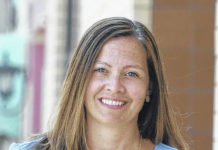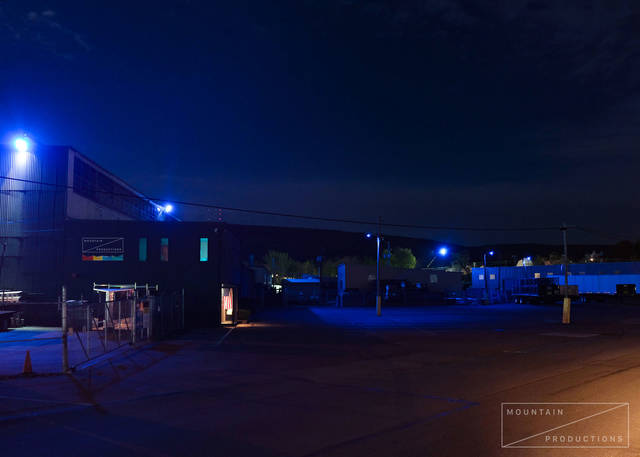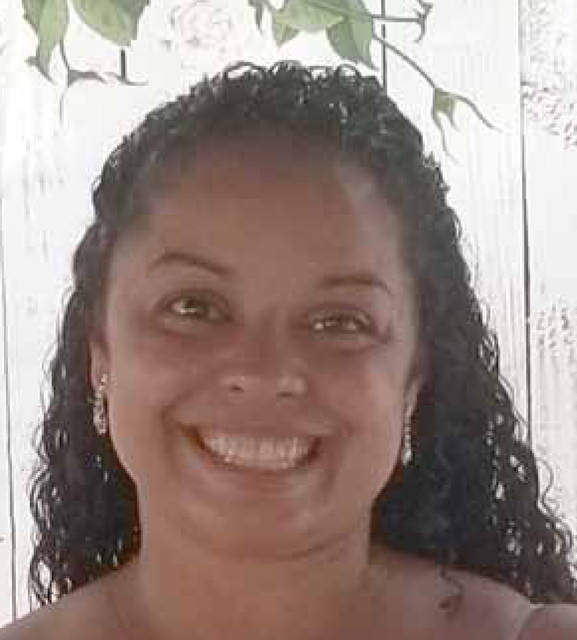WEST PITTSTON — When Carol Coolbaugh learned the state physician general had signed a standing order last October making naloxone available to all Pennsylvania residents, she was relieved.
The drug, also known as Narcan, reverses the effect of heroin and other opiates in the case of an overdose. The order followed one in April 2014 establishing a similar order for first responders.
In 2009, Coolbaugh lost her son, Erik, to an overdose. Now, seven years later, her daughter, Jennifer Coolbaugh Skursky, has been clean and sober for about eight months, attending recovery meetings and caring for her two children.
Still, Carol worries.
“Anything could happen,” she said. “If she overdoses, I want to be able to bring her back, to save her life.”
Carol believes that if the medication had been available to the person who found her son, perhaps he would still be alive, sharing holidays with them, parenting his children and helping her in the garden.
Erik had been clean and sober for some time before his last relapse, and Carol had hoped and prayed for the best.
Attempting to get naloxone
With this understanding, Jennifer, who lives with her mother, made her way to a local CVS on Jan. 20 to buy the drug. She expected to simply pay for it, bring it home and place it in the medicine cabinet with the hope she would never need to use it.
At most, she thought the pharmacy staff might need to order the drug and it would be available in a few days.
“I inquired four times, basically once a week, and my mom inquired twice,” Jennifer said.
Finally, on Feb. 18, the pharmacy called to say the drug was ready.
“They had said they had it for a while, but had misplaced it amidst some alkaline batteries,” Carol said.
“Really?” asked Jennifer, hinting it was incredulous that a potentially life-saving substance had been misplaced in a non-pharmaceutical area of the store.
Having been quoted various prices in regard to the drug, which can be administered nasally or through an injection, Jennifer had no out-of-pocket costs after insurance.
Carol believes the process of obtaining the drug was too long and complicated.
“My daughter, anyone, could have died waiting for the drug to be available,” she said.
Both Carol and Jennifer also said the pharmacy staff and the public seem to have a misunderstanding about the standing order and what it means.
Department of Health responds
In October, Pennsylvania Physician General Rachel Levine signed a statewide standing order for naloxone, essentially giving everyone in Pennsylvania a prescription for the life-saving drug.
This month, she began a pharmacy tour across the state to remind residents and pharmacists a prescription is not needed to obtain the opioid antidote.
“I did this because of the severity of the crisis,” Levine said. “If someone has overdosed, by the time 911 comes, it may be too late.”
Levine emphasized that no one gets high from taking naloxone.
“It’s a drug that reverses the effects of opiates,” she said. “It can’t be abused.”
In theory, anyone should now be able to go to a pharmacist and obtain naloxone, but the Times Leader found that was not the case.
Three Rite Aid pharmacies, a Walgreens pharmacy, three CVS pharmacies and a private pharmacy were contacted. None were aware of the order.
One pharmacist said he believes attempting to get naloxone without a prescription is against state and federal law.
One CVS pharmacist strongly advised that, “you can’t just come in and get naloxone,” in spite of a press release by CVS cooperate officials that clearly states the pharmacy would make the drug available to residents of Pennsylvania.
A pharmacist at the CVS pharmacy in Wyoming, however, was aware of the standing order and of the press release issued by the company.
“Over 44,000 people die from accidental drug overdoses every year in the United States,” CVS Vice President Tom Davis said in a statement in September. “By providing access to this medication in our pharmacies without a prescription in more states, we can save lives.”
Adverse opinions
The Coolbaughs are aware some people wonder why money would be spent to save drug addicts, many who will use heroin and other opiates again.
Luzerne County Alcohol and Drug Services Administrator Michael Donahue said addiction, like other diseases, needs to be treated in the short term to provide an opportunity for those suffering from it to have success in the long term.
Bringing an addict back from an overdose provides an opportunity to encourage him or her to go to a detoxification unit, to a rehabilitation center and begin to live a sober life.
Although Donahue encourages those obtaining the drug to complete an online training that will assist them in identifying someone who has overdosed on an opiate and provide direction on getting them to an emergency room and obtaining further treatment, he believes simply getting naloxone into the hands of those who can help is a lifesaving move.
“Where there is life,” he said, “there is hope.”
Give them a chance
Maureen Kasenchak found her son, John Alan, after an overdose in December 2010.
John Alan had been doing well and was preparing for a move to New York City when his mother realized he had been in the bathroom a long time. She found him on the floor.
She wishes she had naloxone available to her on that night.
“Maybe he didn’t have to die,” she said. “Maybe he could have had one more chance.”
A social worker, Kasenchak believes addiction is a disease and that society should provide an opportunity for recovery to those who suffer from it.
She said the disease is not a result of bad parenting.
“His brother is now a physician,” she said of her deceased son.
She likens John’s personality to having a sunburn.
“It was like he had a sunburn (emotionally) and if you touched him, he was really so hurt,” she said. “I believe that he took drugs to stop the pain.”
He was also a very caring person, she said.
Kasenchak joins the Coolbaughs in her determination to get the word out.
“I lost my son to a tragic overdose and I don’t know if I had to,” she said. “It’s so important to get the word about this drug out.”
Looking to the future
Levine said the Department of Health has a commitment to informing pharmacists of the standing order.
She said the department will forward letters to Pennsylvania pharmacies in the near future, detailing the specifics of the order.
“We just believe that they have not yet been informed,” she said. “We’re working with the Pennsylvania Pharmacists Association and sending out letters so they can better understand the law and the order.”
In the meantime, Jennifer Coolbaugh Skursky is going to meetings, getting counseling and refraining from drug use one day at a time.
The naloxone kit she now has is simply a safety net, should she or anyone in her presence overdose on opiates.






